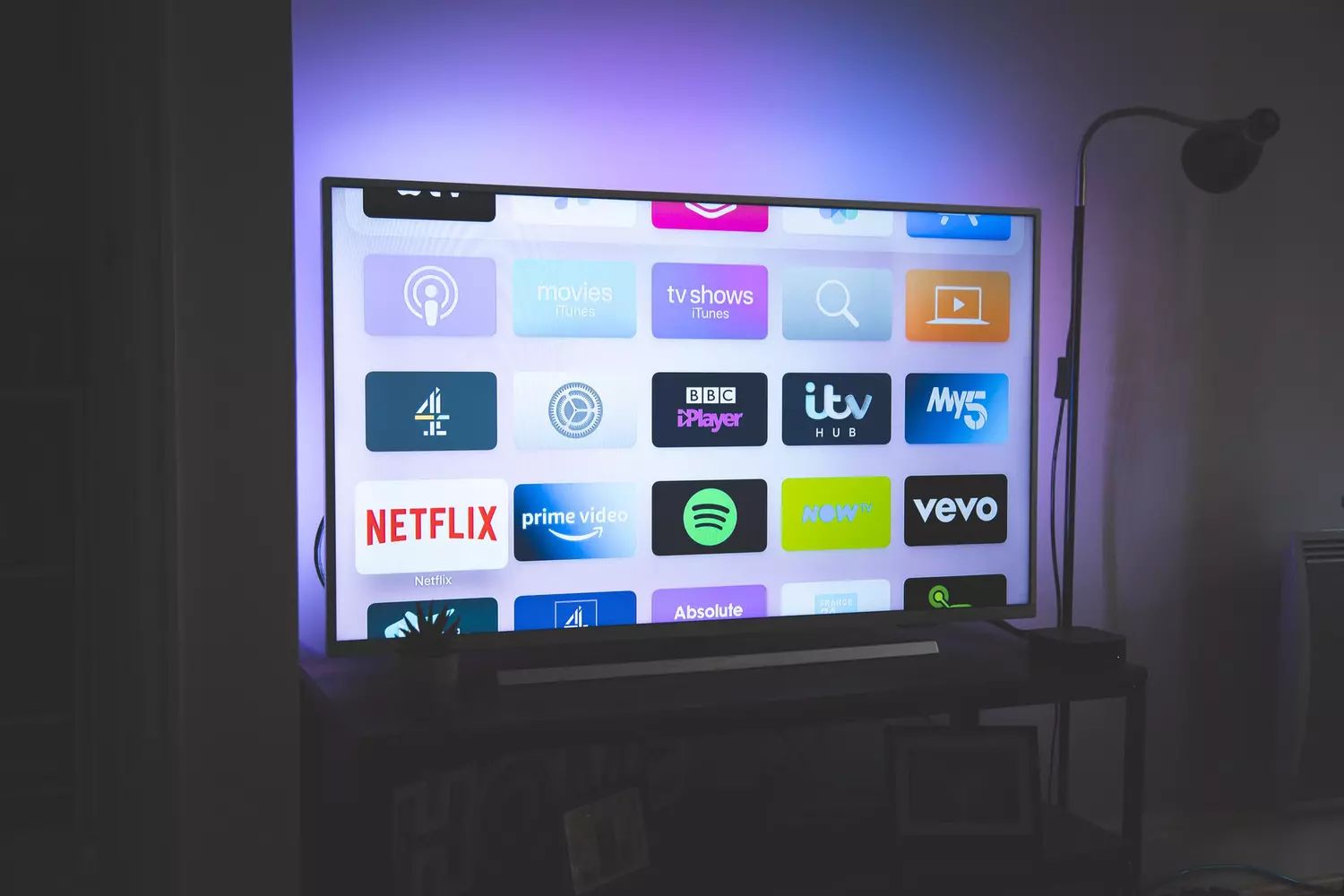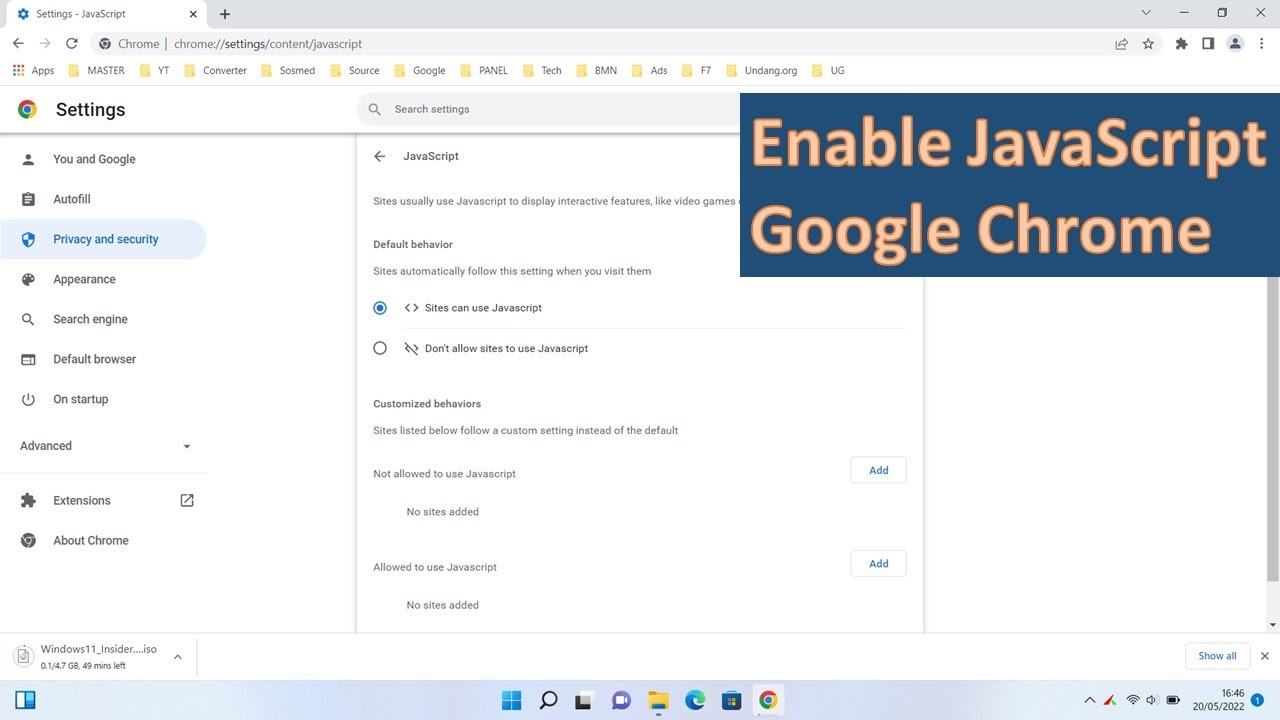Why Should I Update My Web Browser
Updating your web browser is crucial for a seamless and secure online experience. Here's why keeping your browser up to date is essential:
-
Security Enhancements: Web browsers are the gateway to the internet, and they play a pivotal role in safeguarding your online activities. Browser updates often include security patches that address vulnerabilities and protect you from evolving cyber threats. By staying current with updates, you can mitigate the risk of malware, phishing attacks, and other security breaches.
-
Improved Performance: Browser updates frequently come with performance enhancements, such as faster page loading, smoother navigation, and better overall responsiveness. These improvements can significantly enhance your browsing experience, making it more efficient and enjoyable.
-
Compatibility with Websites and Applications: As technology advances, websites and web applications are continually evolving to incorporate new features and functionalities. Updated browsers ensure compatibility with these advancements, allowing you to access and utilize the latest web content without encountering compatibility issues.
-
New Features and Functionality: Browser updates often introduce new features and tools that can enhance your productivity and overall browsing experience. These may include improved privacy settings, enhanced customization options, and innovative tools for managing bookmarks, tabs, and extensions.
-
Support for Web Standards: Web standards are constantly evolving, and updated browsers are designed to adhere to these standards, ensuring that you have access to the latest web technologies and functionalities. This support enables you to enjoy richer multimedia content, interactive web applications, and seamless integration with emerging web technologies.
-
Bug Fixes and Stability: Updates often include bug fixes and stability improvements, addressing issues that may cause browser crashes, freezing, or other disruptions. By keeping your browser up to date, you can benefit from a more stable and reliable browsing experience.
In essence, updating your web browser is essential for maintaining a secure, efficient, and enjoyable online experience. It not only enhances security and performance but also ensures compatibility with the latest web technologies and features. By staying current with browser updates, you can make the most of your online activities while minimizing potential risks and compatibility issues.
How to Update Your Web Browser
Updating your web browser is a straightforward process that varies slightly depending on the browser you are using. Here's a step-by-step guide to updating the most popular web browsers:
Google Chrome
- Open Chrome and click on the three-dot menu icon in the top-right corner of the browser window.
- From the drop-down menu, select "Help," and then click on "About Google Chrome."
- Chrome will automatically check for updates and install them if available. If an update is found, you will be prompted to relaunch the browser to apply the update.
Mozilla Firefox
- Launch Firefox and click on the menu button (three horizontal lines) in the top-right corner.
- Select "Help," and then click on "About Firefox."
- Firefox will check for updates and download them automatically. Once the download is complete, click "Restart to Update" to apply the update.
Microsoft Edge
- Open Microsoft Edge and click on the three-dot menu icon in the top-right corner.
- Navigate to "Help and feedback" and select "About Microsoft Edge."
- Edge will check for updates and install them if available. You may need to restart the browser to complete the update process.
Apple Safari
- On a Mac, open the App Store and click on the "Updates" tab. If a Safari update is available, it will be listed here. Click "Update" next to Safari to install the update.
- On Windows, updates for Safari are typically delivered through the Apple Software Update utility. Launch the utility and follow the prompts to install any available updates for Safari.
Opera
- Launch Opera and click on the Opera menu button in the top-left corner of the browser window.
- Select "Update & Recovery" from the menu, and Opera will check for updates. If an update is available, follow the on-screen prompts to install it.
Other Browsers
For less common browsers, the update process may vary. However, most modern browsers have a built-in update mechanism that can be accessed through the browser's settings or help menu. If you are unsure how to update your specific browser, visiting the official website or support documentation for that browser can provide detailed instructions.
By following these simple steps, you can ensure that your web browser is up to date, allowing you to benefit from the latest security enhancements, performance improvements, and new features. Regularly checking for and applying browser updates is a proactive measure to maintain a secure and optimized browsing experience.
Benefits of Updating Your Web Browser
Updating your web browser offers a myriad of benefits that contribute to a safer, faster, and more enjoyable browsing experience. Here are the key advantages of keeping your browser up to date:
Enhanced Security
One of the most critical benefits of updating your web browser is the bolstered security it provides. Browser updates often include patches for known vulnerabilities, shielding you from potential cyber threats such as malware, phishing attacks, and unauthorized access. By staying current with updates, you fortify your defense against evolving security risks, ensuring that your online activities remain secure and protected.
Improved Performance
Browser updates frequently come with performance enhancements that can significantly elevate your browsing experience. These improvements may include faster page loading times, smoother navigation, and optimized resource utilization, resulting in a more responsive and efficient browsing environment. By updating your browser, you can enjoy a seamless and swift browsing experience, enhancing productivity and satisfaction.
Compatibility with Advanced Web Content
As websites and web applications evolve to incorporate advanced features and technologies, updated browsers ensure seamless compatibility with these advancements. By keeping your browser up to date, you can access and interact with the latest web content without encountering compatibility issues. This compatibility extends to multimedia content, interactive web applications, and emerging web technologies, allowing you to fully experience the richness of the modern web.
Access to New Features and Functionality
Browser updates often introduce new features and tools that enhance your browsing experience. These may include improved privacy settings, enhanced customization options, and innovative tools for managing bookmarks, tabs, and extensions. By updating your browser, you gain access to these new functionalities, empowering you to personalize your browsing experience and take advantage of cutting-edge features.
Support for Web Standards
Web standards are continually evolving, and updated browsers are designed to adhere to these standards, ensuring that you have access to the latest web technologies and functionalities. By updating your browser, you can enjoy richer multimedia content, seamless integration with emerging web technologies, and enhanced support for interactive web applications, providing a more immersive and dynamic browsing experience.
Bug Fixes and Stability
Browser updates often include bug fixes and stability improvements, addressing issues that may cause browser crashes, freezing, or other disruptions. By keeping your browser up to date, you can benefit from a more stable and reliable browsing experience, minimizing interruptions and enhancing overall usability.
In essence, updating your web browser is essential for maintaining a secure, efficient, and enjoyable online experience. It not only enhances security and performance but also ensures compatibility with the latest web technologies and features. By staying current with browser updates, you can make the most of your online activities while minimizing potential risks and compatibility issues.
Common Issues with Outdated Web Browsers
Outdated web browsers can pose various challenges that hinder the overall browsing experience and compromise online security. Understanding these common issues is crucial for recognizing the importance of keeping your browser up to date. Here are the prevalent problems associated with outdated web browsers:
Security Vulnerabilities
Outdated web browsers are susceptible to security vulnerabilities that can leave users exposed to a range of online threats. Without the latest security patches and updates, browsers may become targets for malware, phishing attacks, and other forms of cyber exploitation. Hackers often exploit known vulnerabilities in outdated browsers to gain unauthorized access to sensitive information, compromise user privacy, and execute malicious activities. By failing to address these security vulnerabilities through timely updates, users put themselves at significant risk of falling victim to cyber threats.
Compatibility Issues
Another common issue with outdated web browsers is compatibility problems with modern websites and web applications. As the internet continues to evolve, websites and web-based services increasingly rely on advanced technologies and coding standards. Outdated browsers may struggle to render or interact with these modern web elements, leading to distorted page layouts, dysfunctional features, and overall poor user experience. This can result in frustration for users who encounter compatibility issues, as they may be unable to access certain content or utilize essential functionalities on websites due to their outdated browser version.
Performance Degradation
Outdated web browsers often suffer from performance degradation, leading to slower page loading times, unresponsive user interfaces, and overall sluggishness. As websites and web applications optimize their performance for the latest browser versions, older browser iterations may struggle to keep up with the demands of modern web content. This can lead to a subpar browsing experience, causing frustration for users who expect seamless and efficient navigation. Additionally, outdated browsers may consume more system resources, further impacting the overall performance of the user's device.
Lack of Feature Support
Older browser versions lack support for the latest web features and functionalities, limiting users' ability to take advantage of innovative tools and technologies. This can result in a less engaging and interactive browsing experience, as users miss out on new capabilities introduced in updated browser versions. For example, advanced privacy controls, enhanced multimedia support, and improved web application compatibility may not be available to users of outdated browsers, depriving them of the benefits of modern web advancements.
Limited Developer Support
Developers of websites and web applications may gradually phase out support for outdated browser versions, focusing their efforts on optimizing their products for the latest browser releases. This can lead to a diminishing user experience for individuals using outdated browsers, as they may encounter more frequent issues and limitations when accessing and interacting with web content. Over time, the lack of developer support for outdated browsers can further exacerbate the challenges faced by users, ultimately diminishing the value and functionality of their browsing experience.
In summary, the common issues associated with outdated web browsers encompass security vulnerabilities, compatibility challenges, performance degradation, lack of feature support, and limited developer backing. By recognizing these issues, users can appreciate the critical role of keeping their browsers up to date, ensuring a secure, efficient, and enjoyable online experience.

























